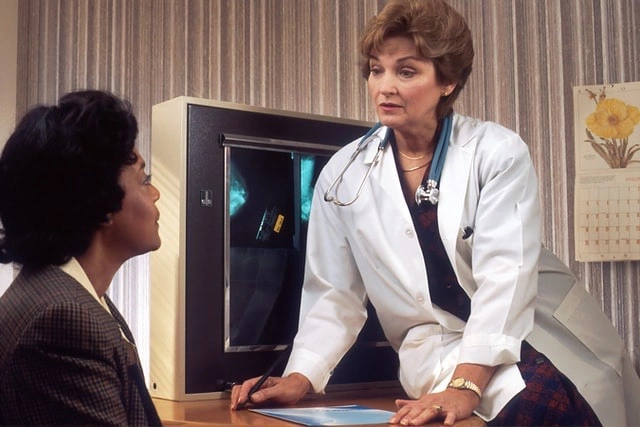Know How Your Diagnosis is Made So You Can Be Prepared

When you have an appointment with a new healthcare provider, be sure to bring your Health History with you. Bring a list of each medication you are on and their doses or the containers for each medication you are on, including any over-the-counter drugs, herbs, supplements, vitamins. Tell your doctor about any symptoms you have been experiencing. This will help your doctor make a diagnosis. Sometimes different illnesses will have similar symptoms so it is important for you to communicate this information to your doctor.
Tell your doctor about any symptoms you have been experiencing. This will help your doctor make a diagnosis.
When you visit your primary healthcare provider, s/he will do an assessment of your 12 body systems in order to diagnose any dysfunction or disease. Along with asking you questions, the doctor will complete the assessment through the use of inspection, palpation (touch), auscultation (listening with a stethoscope), and/or percussion (tapping). The information gathered will help make a tentative diagnosis of your medical problem. In order to confirm the tentative diagnosis, the doctor may order a variety of diagnostic tests, including but not limited to, blood work, Xrays, Magnetic Resonant Imaging (MRI), Computerized Tomography (C-T Scan), Ultrasound, colonoscopy, endoscopy, electrocardiogram (EKG), electroencephalogram (EEG), Stress Test, tissue biopsy, urine testing, sputum testing, wound drainage testing, barium swallows or enemas, angiograms, etc.
Don’t be afraid to let your primary doctor know that you desire to get a second opinion. This will allow you to bring the findings from the second doctor back to your primary doctor for further discussion.
Have a conversation with your doctor about which labs and diagnostic centers s/he is will be using to help make your diagnosis. You want to make sure your health insurance company will pay for those facilities and the professional providers who will be performing those diagnostics tests. You don't want to receive any large out-of-network bills because the provider wasn't in your insurance network. Generally, doctors' offices get pre-authorization from your health insurance company for such testing, so this isn't a common problem. But sometimes, especially if you're in the hospital and your healthcare teams calls in a consulting specialist, they may not always be in your network.
Be sure you bring a family or friend patient advocate with you who can help make sure your voice is heard.
The results of any of these tests, performed by highly trained technicians or doctors, will be reviewed by the head doctor of each respective department, and will be shared with your doctor in either confirming or discounting the tentative diagnosis. Once that diagnosis is confirmed, your physician will determine the best treatment for you. If that diagnosis is not confirmed, your primary physician may send you for more tests or to a specialist for further work-up or treatment.
Be sure you bring a family or friend patient advocate with you who can help make sure your voice is heard during all discussions and while you may be sedated for a proecdure or test.
If you are not comfortable with your diagnosis, prognosis, or treatment plans from your primary doctor, be sure to get a second opinion, which most insurance companies will encourage you to do and pay for. Don’t be afraid to let your primary doctor know that you desire to get a second opinion. This will allow you to bring the findings from the second doctor back to your primary doctor for further discussion. Be sure to seek out that second opinion from a doctor unaffiliated with your primary doctor or hospital-system. The second doctor may either agree or disagree with the diagnosis and treatment recommended by your primary doctor. This is something you need to be prepared for. In some rare instances, you may desire a third opinion. This, too, is fine but don’t run yourself ragged trying to find the doctor with the perfect fix. You will spend lots of energy, precious time and money doing so. It is most important to find a doctor you feel comfortable with and trust. Remember that doctors network and if they have a proven successful method of treatment, they generally share their treatments with colleagues.
Make sure you ask to get a written report of all diagnostic test results. This guarantees that your doctor has read them! If you don’t get a copy of them within one week, either call your doctor or access them through your patient portal. If you access the results through your patient portal and don't understand the implications, call the doctor's office and ask to speak with your doctor about the results.
